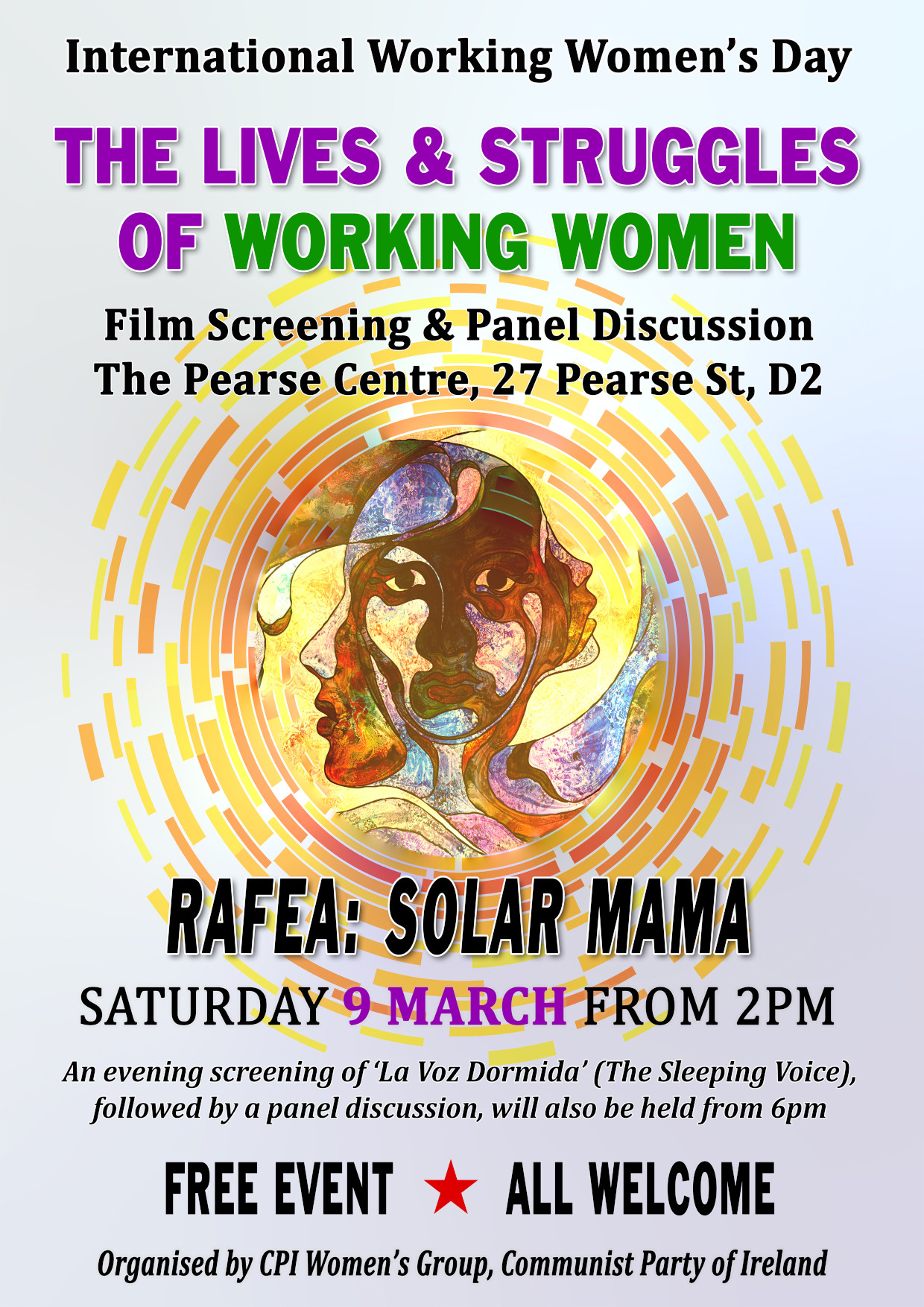The CPI held a number of successful events to celebrate International Working Women’s Day this year. The two main events took place in Belfast and Dublin.
The Dublin event, organised by the CPI Women’s Group, was held under the heading “The lives and struggles of working women.” It took the form of a screening of the acclaimed Spanish film La Voz Dormida, followed by a panel discussion on “The rise of fascism and racism, and how to build a community response.” The panel comprised Mags Glennon (Anti-Fascist Action), Maureen Sheilds (Friends of the International Brigades), Helena Keane (community activist against racism), and Ghada Abdalkeem from Sudan. (Ghada’s talk is published in this issue of Socialist Voice.)
This debate is an essential one at this time as we witness the growth of the hard right and racist forces in the advanced capitalist world. Workers are struggling to understand what is happening to themselves, their families and communities as the crisis of the capitalist system continues to wreak havoc on us all. Communities are stripped of services, with low wages and precarious employment becoming commonplace.
While much of the left talk at the working class, this event concentrated on talking to the class, through respected activists from the communities we need to reach.
The issues of racism and fascism need deeper discussion and debate within the working-class movement and the left, and we should not allow the liberal left and liberal establishment to define or dominate the debate.
In Belfast the celebration of Women’s Day is far more developed, with a programme of celebration spread over nearly two weeks. The CPI held a public meeting on the theme “Welfare, not warfare,” addressed by Thea Valentina Gardinellin of Italy and Clare Daly TD. Thea Valentina spoke about her home, Vicenza, which has seven US bases and an EU-NATO base. Clare Daly, who had just returned from a visit to Venezuela, spoke about how Irish neutrality has ceased to exist, with US military planes using Shannon Airport, and about the duplicity of the EU regarding Venezuela.
As well as organising this important political event, the Belfast Branch of the CPI produced a special supplement to mark International Working Women’s Day, and there was a CPI presence on the Belfast Women’s Day march.
Events in Dublin were more muted in comparison with previous years, partly as a result of the victory of the Repeal the 8th campaign and the winning of abortion services in the Republic—a struggle yet to be won for women in the Six Counties.
What has been an important feature over recent years has been the solidarity between women’s groups and campaigns north and south, each benefiting from closer co-operation and solidarity. This makes a clear point that only the women of Ireland can solve problems and secure advances for the women of Ireland—not external bodies. It is the actions of these women that have effected real change.
The National Executive Committee of the CPI offers its congratulations to all those organisations and individual women who continue to build International Working Women’s Day around the country and internationally. To all those who struggle for radical change in the real, lived conditions of working women, we offer our solidarity.






